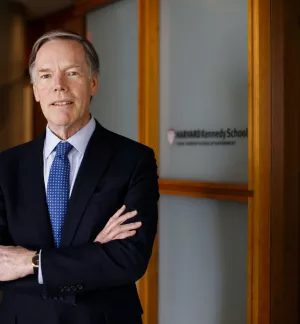Differences remain and this will be no honeymoon with Tehran
The nuclear deal reached in Vienna on Tuesday is the latest step in a decade-long struggle by the west to contain Iranian power in the Middle East. This is a sensible agreement and far preferable to an Iran unfettered and ever closer to a nuclear weapon. Its great advantage is to freeze Iran’s nuclear efforts for a decade to come.
But it is an imperfect deal. Its effectiveness depends on international inspectors being able to uncover inevitable Iranian cheating and having open access to military sites. It relies on Russia and China sticking together with Europe and the US to insist on full Iranian compliance.
And, while Iran’s capacity to build a nuclear weapon will be limited for now, its civil nuclear apparatus will be ready to be taken out of mothballs in 10 years’ time.
Had the talks collapsed, however, international unity would have frayed and Tehran, freed from sanctions, would have been back in the weapons design business, with no restrictions on its uranium enrichment and plutonium plants. Instead, the Vienna agreement adds at least one year to the time Tehran would need to build a bomb. The ayatollahs would have been just a month or two away from a weapon if talks had failed.
The agreement’s many opponents — in Israel, the Gulf States and the US Congress — argue that it will lead to a rapprochement between Iran’s theocratic regime and the US. Yet this will be no honeymoon. President Barack Obama and his successor will have no choice but to contain Iran’s regional reach.
For one thing, it is not at all certain that Iran will implement the deal fully. Much will depend on whether the pro-western faction can hold sway over hardliners in the security establishment in Tehran. For months, there has been a stark difference between what foreign minister Mohammad Javad Zarif promised in Vienna and the contradictory messages later delivered in Tehran. Ayatollah Ali Khamenei, Iran’s supreme leader, startled his country’s negotiating partners by proclaiming “red lines” in late June that contradicted Mr Zarif’s own commitments on central issues.
This could have been a negotiating ploy, but more likely reflects deep divisions in Tehran that may surface again as the deal is implemented. Expect a cat and mouse chase for years to come between Iran’s reclusive regime and international nuclear inspectors.
The second reason rapprochement is unlikely is Tehran’s push into the heart of the Sunni world during the past year. Iran has become the dominant outside influence in Iraq, elbowing aside an often passive, distracted US. It acts as kingmaker in Syria, as the Assad government’s strongest military supporter. Its influence reaches into Lebanon via Hizbollah, and Gaza through Hamas. Most recently, its support for Houthi rebels in Yemen has fuelled the civil war there.
The spearhead of Iranian strategy in all these countries is the radical Iranian Revolutionary Guard Corps Command (IRGC) led by its tough, cynical leader, Major General Qassem Soleimani. In contrast to the westernised Iranian negotiating team in Vienna, the IRGC is the regime’s hard-edged military wing.
Its ambitious campaign to make Iran the region’s most powerful state will engender years of rivalry with Saudi Arabia and the US. The US and Europe were right to resist Russia’s proposal to lift the UN arms embargoes on Iran, which would have enabled Iran to create further mischief.
The Obama administration must reassemble a coalition to contain Iran. Mr Obama can begin by mending his tense relationship with Benjamin Netanyahu, Israeli prime minister. He must strengthen the conventional power of the Gulf States, too.
The talks have also opened a window that had been closed for three decades. Secretary of state John Kerry’s diplomatic engagement with Iranian officials will help to manage the inevitable ups and downs with their unpredictable government.
He will want to engage Iran where they have common foes (the Islamic State of Iraq and the Levant, known as Isis) and where they have stark differences (such as Iran’s support for the Syrian regime).
The nuclear deal advances western interests. It is a historic step forward for the US and Europe. But we will need to be in containment mode with Iran for some time to come.
Burns, Nicholas. “The deal is historic, but the US must now act to contain Iran.” Financial Times, July 14, 2015


